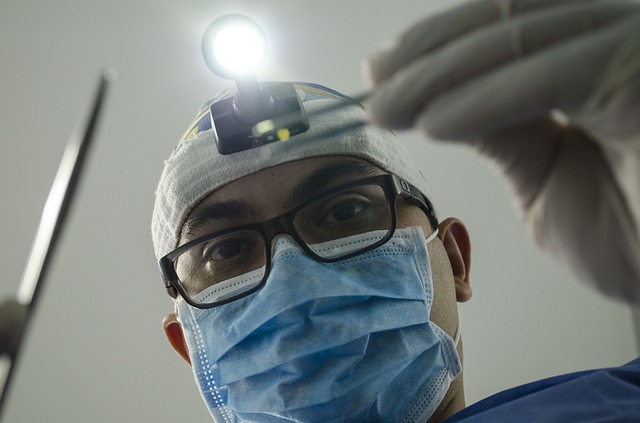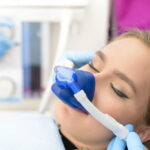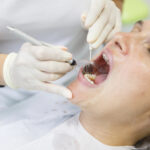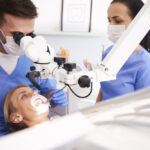Oral health is often overlooked as an essential component of overall well-being, yet it plays a crucial role in a person’s physical and emotional health. When individuals in a community have access to proper oral care, the benefits ripple outward, impacting not only their smiles but also the entire community’s health, confidence, and productivity. Programs such as community dental clinics and healthier smiles community services are critical in making these benefits a reality, especially for underserved populations.
In this article, we will explore how oral care uplifts communities, the significance of community dental clinics, and how innovative programs like healthier smiles community service help promote a holistic approach to health.
The Importance of Oral Health in Communities
Oral health affects much more than just the mouth. Poor dental hygiene is linked to a range of systemic health issues, including heart disease, diabetes, and respiratory infections. Furthermore, oral diseases like tooth decay and gum disease can lead to chronic pain, difficulty eating, and a diminished quality of life. For children, poor oral health can negatively affect school performance, self-esteem, and social development. For adults, it can impact employability and workplace productivity.
Communities with limited access to dental care often experience a higher prevalence of oral diseases, which can perpetuate cycles of poor health and economic disadvantage. This is where community dental clinics come into play. These clinics act as a lifeline, providing crucial oral care services to populations that might otherwise go without.Take the first step toward a healthier smile—visit your nearest dental clinic for a check-up today.
The Role of Community Dental Clinics
Community dental clinics are dental facilities that offer low-cost or free services to individuals in need, particularly in underserved areas. These clinics are often run by non-profit organizations, government programs, or educational institutions, and they aim to make dental care accessible to everyone, regardless of socioeconomic status.
By offering services such as cleanings, fillings, extractions, and preventive care, community dental clinics play a significant role in improving the oral health of entire populations. They often partner with schools, shelters, and other community organizations to reach the people who need care the most.
For example, many community dental clinics provide outreach services, sending mobile dental units to schools or community centers to perform check-ups and treatments for children. This early intervention helps prevent oral health problems from worsening and encourages the development of good dental habits from a young age.
The impact of these clinics goes beyond just providing immediate care. They also serve as educational hubs, teaching individuals about proper oral hygiene practices like brushing, flossing, and the importance of regular dental check-ups. This education is crucial, as many people in underserved communities are unaware of the significant role oral health plays in overall wellness.
Healthier Smiles Community Service: A Holistic Approach
One of the innovative approaches that take community oral care to the next level is the Healthier Smiles Community Service program. These services are designed to address not only the immediate dental needs of a community but also to promote long-term oral health habits. They often include a combination of direct services (such as dental care), education, and community engagement activities that foster a culture of oral health awareness.
The Healthier Smiles Community Service initiative operates under the philosophy that oral health is a right, not a privilege. It aims to remove barriers to care, such as financial constraints, geographical isolation, or lack of awareness about oral health. This service typically involves collaborations between dental professionals, public health organizations, local governments, and volunteers, all working together to uplift communities through better oral health.
For instance, one key aspect of Healthier Smiles Community Service is its focus on preventive care. By teaching communities about the importance of regular brushing and flossing, providing fluoride treatments, and distributing dental hygiene supplies, the program helps reduce the incidence of dental problems before they start. It also encourages regular dental visits, which are vital for maintaining a healthy smile.
Additionally, the service often incorporates community workshops and events where dental professionals provide hands-on demonstrations of proper oral hygiene techniques. These workshops not only educate but also empower individuals to take control of their oral health. By making dental care an integral part of community life, the Healthier Smiles Community Service fosters a sense of collective responsibility for health and well-being.
The Ripple Effect of Improved Oral Health
When a community has access to quality oral care, the benefits extend far beyond healthier teeth and gums. Improved oral health leads to fewer absences from work and school due to dental issues, which in turn boosts productivity and economic stability. Children who receive proper dental care are more likely to perform better in school, contributing to long-term educational and social success.
Moreover, the self-confidence that comes with a healthy smile can significantly impact a person’s quality of life. Studies show that individuals who feel good about their smile are more likely to engage in social activities, pursue job opportunities, and experience positive mental health outcomes.
On a broader scale, healthier communities reduce the strain on healthcare systems. Preventing oral health problems through accessible dental care means fewer emergency room visits and a reduction in the need for costly treatments down the line. This not only benefits individuals but also eases the financial burden on public health resources.
Investing in Smiles for a Healthier Future
Oral health is an essential part of overall well-being, and investing in community-focused dental care programs is a powerful way to uplift individuals and communities alike. Through the efforts of community dental clinics and initiatives like Healthier Smiles Community Service, access to oral care is becoming more equitable, helping to close health disparities and promote brighter, healthier futures.
By continuing to expand and support these programs, we can ensure that everyone has the opportunity to enjoy the benefits of a healthy smile—because healthier smiles truly lead to healthier lives.













